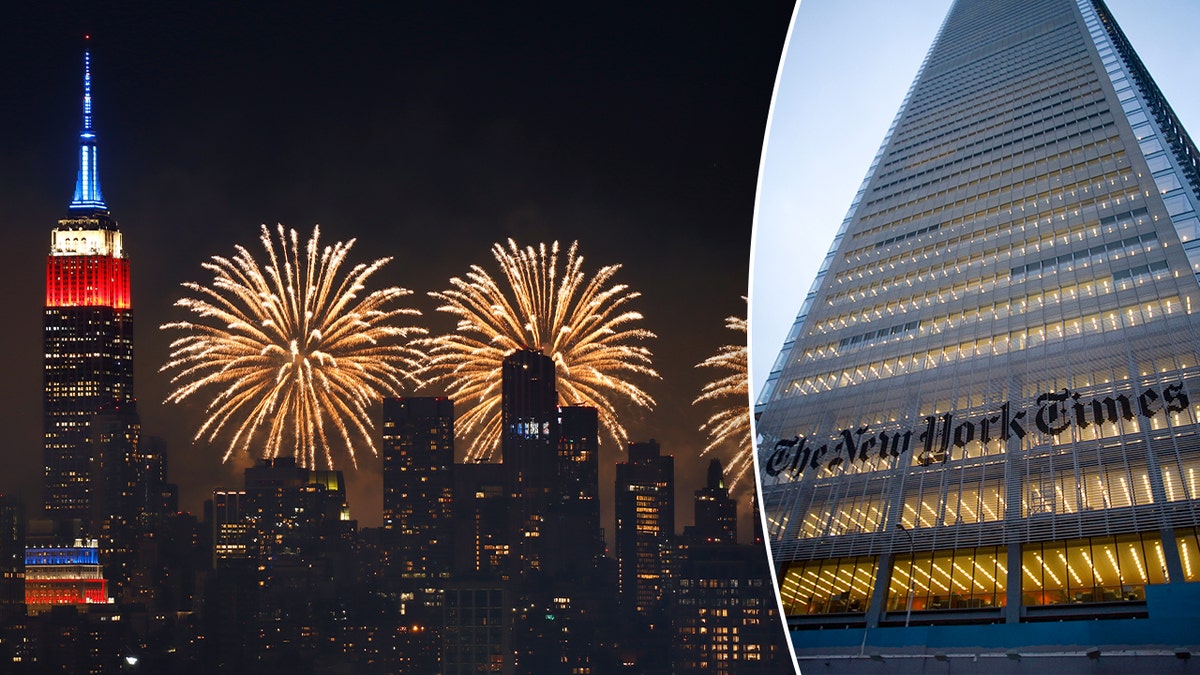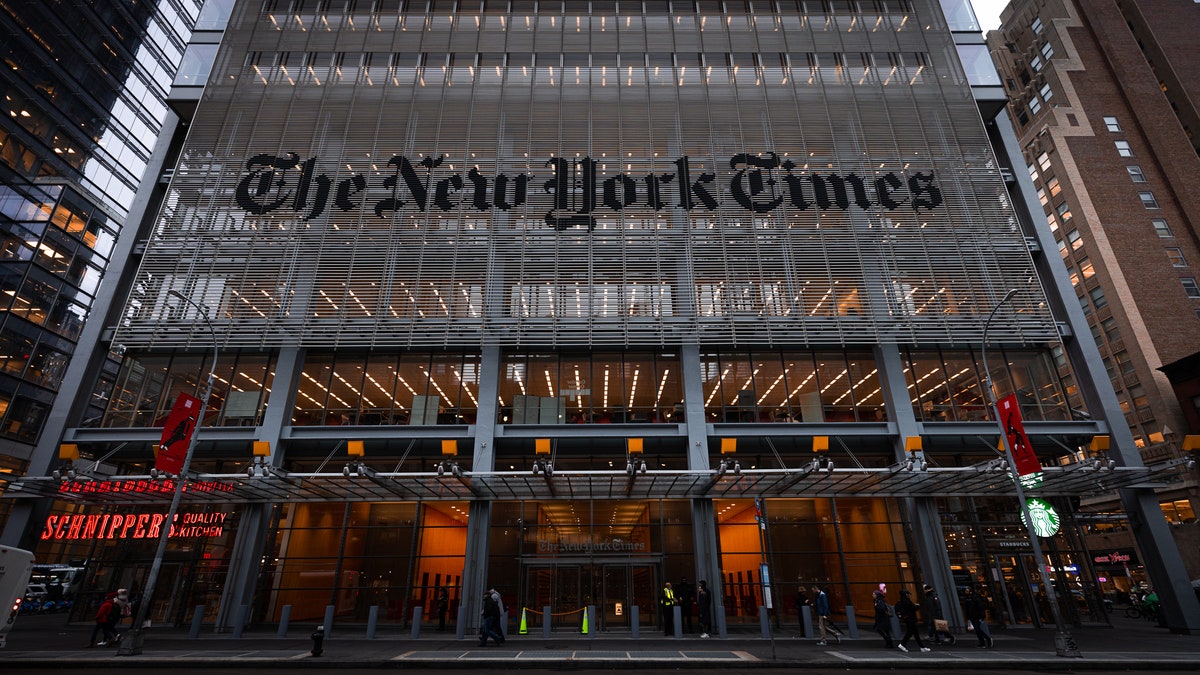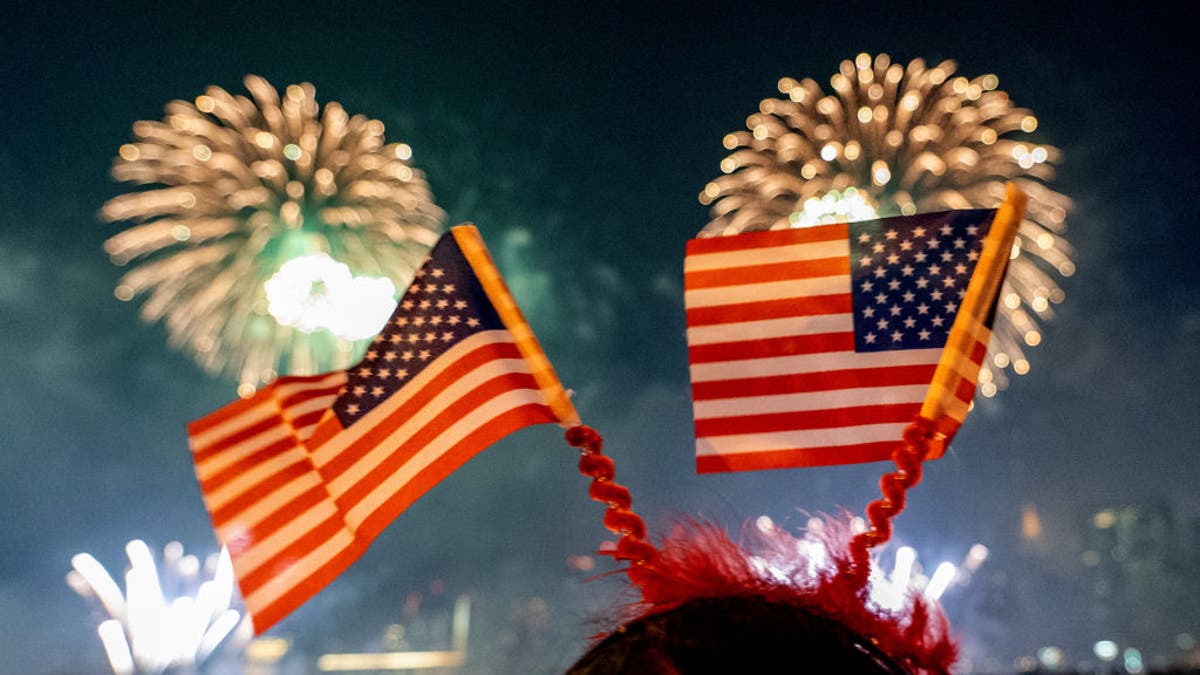New York Times journalist speaks out ahead of company walkout rally
Fox News Digital spoke with Larry Buchanan outside the New York Times building ahead of a planned rally by striking employees.
A New York Times article published Tuesday voiced concerns over air pollution by homing in on one key Fourth of July tradition: Fireworks.
Climate writer Delger Erdenesanaa wrote that air pollution concerns and fears of igniting more wildfires like the ones spilling smoke into the U.S. from Canada are driving the reluctance to feature the annual spectacle in some areas. In Salt Lake City, the show is set to be replaced by drones and lasers are replacing the pyrotechnics during Independence Day celebrations in Minneapolis.
"Fireworks cause a spike in a form of air pollution called particulate matter, the same type of pollution that is elevated from wildfire smoke," Erdenesanaa wrote.
WASHINGTON POST BEMOANS HOW JULY 4TH ‘MOST POLLUTED DAY OF THE YEAR’ BECAUSE OF FIREWORKS

Graphic collage shows a fireworks display behind the Empire State Building in New York City with a snapshot of The New York Times building on the right. (Gary Hershorn/Getty Images & Ramin Talaie/Corbis via Getty Images)
According to the Centers for Disease Control and Prevention (CDC), particulate matter can encompass any number of pollutants, including smoke, dust, dirt, drops of liquid and soot. Though fireworks are not specifically mentioned in the rundown on the pollutant, it does mention wood stoves, factory emissions, vehicle emissions and other familiar sources.
The CDC cautioned, however, that the finer particles can get into the "deep part of your lungs" while others irritate your eyes, nose and throat.
Erdenesanaa quoted Dian Seidel, a retired NOAA climate scientist, as noting that countries around the world see spikes in particulate matter levels around major holidays similar to how the U.S. sees a significant spike during and around Independence Day festivities.

The New York Times Building in Midtown Manhattan. Delger Erdenesanaa, a climate fellow for The Times, cautioned against using fireworks in July 4 festivities. (Fox News Photo/Joshua Comins)
Their proposed (possible) solution is to find an alternative.
"Maybe there are ways not to be a party pooper, but to still have something pretty in the sky to look at, and not cause a big amount of pollution," Seidel said, per the article.
Erdenesanaa specified, in short, that the holiday causes a temporary spike in particulate matter, but the experts cited in the piece are not out to cancel the practice, but instead raise awareness.
FOURTH OF JULY FIREWORK SAFETY TIPS: WHAT TO KNOW

Spectators watch the 45th annual Macy’s 4th of July Fireworks display overlooking the Manhattan skyline at Gantry State Plaza in Long Island City on July 4th, 2021 in the Queens borough of New York City. (Alexi Rosenfeld/Getty Images)
"They [Seidel and Dr. Tee Lewis] simply urge caution, and for people to consider alternatives," she wrote, going on to lament the day-to-day pollution that afflicts U.S. cities.
"In the end, holiday fireworks lead to just a couple of days of particularly visible air pollution. Around the country and around the world, communities deal with less visible but still unhealthy air daily or seasonally from things like vehicle traffic, industrial pollution and wildfires."



